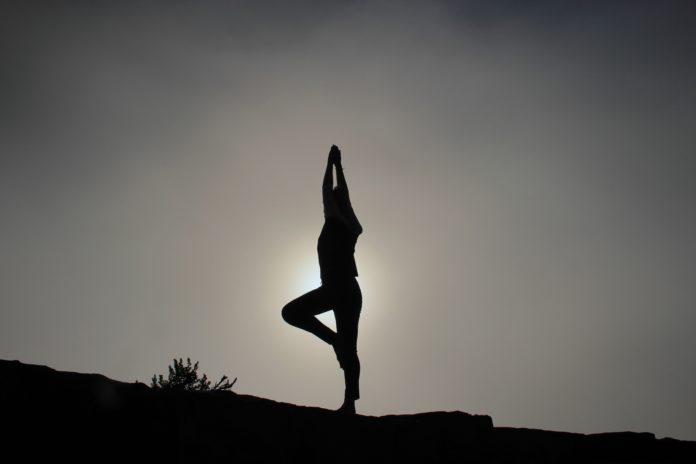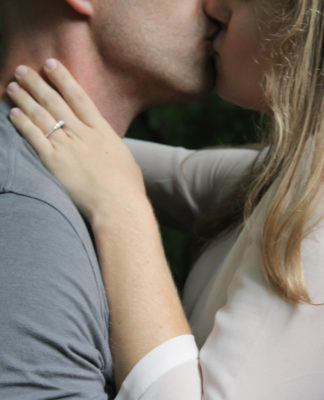The gun violence in Orlando, FL that claimed the lives of 50 people this week, as well as the ongoing epidemic of violent acts on civilians has unsettled many of us. How can we feel safe in the face of such unpredictable and random acts of violence? These global stresses contribute significantly to the personal stress load we already carry every day as we deal with relationship, health, work and family concerns. Unlike daily stresses that are more often perceived as within our control to change, these larger problems may leave us feeling angry, scared and dis-empowered.
I want to share inspiration from some of the young adults I worked with this week. Young people today are facing tremendous pressures including unprecedented environmental toxicity and uncertainty. This has been the ground from which they have developed and includes the 911 terrorist attack and subsequent war, the Columbine High School incident and many other school shootings, as well as financial crises, all of which can create a sense of hopelessness for a positive future.
For some youth, coping with crisis is asked of them almost daily and I was encouraged this week by their insight and resilience as they faced this most recent tragedy. I had the honor of supporting a few of them this week in regaining an inner and outer sense of safety in the world, despite these ongoing national and world events.
Finding Inner Safety
The ability to “self-soothe” is a significant part of a larger set of skills called “distress tolerance” in the Dialectical Behavioral Therapy (DBT) literature originally developed by Marsha Linehan. DBT uses elements of traditional cognitive behavioral strategies and combines them with mindfulness skills. Jon Kabat Zinn defines mindfulness as: “The awareness that emerges through paying attention on purpose, in the present moment, and nonjudgmentally to the unfolding of experience moment by moment.”
To tolerate distress means to be able to handle difficult emotions when there is nothing one can do to change the situation at the moment. Distracting ourselves from intense feelings is another technique and a necessary skill at times. However at some point knowing how to self-sooth or calm down is invaluable.
Rather than having to get away from overwhelming feelings, which can lead to their suppression, being able to stay present with emotions until they subside builds a sense of empowerment, confidence and efficacy that we can draw upon in future difficulties. Mindfulness and other body awareness skills help us tolerate distress and are hands-on, practical tools that benefit us in many challenging situations.
Finding Outer Safety in Community
In the book “Emotional Genius” author Karla McLaren believes that anger protects us and keeps us connected to our sense of honor. It is an emotion that alerts us to a violation of boundaries or an injustice. Used ineffectively, it can be directed outward as harmful action, or turned inward as self-loathing or depression.
Anger is a call to action and when used effectively, can be the motivation and fuel for tremendous social change. I was heartened this week as many of my young clients reported finding community around the tragedy, inspiring their hope for change. One young person became a liaison for a newly forming nonprofit organization to educate youth, another planned to attend a candlelight vigil that evening and another planned to volunteer at an agency. They were encouraged to find a balance between self-care and social action as many had become overwhelmed by keeping up with news.
Practice: Calm Down and Find Right Action
As clients cried and described their fears of having no control over their world, I led them through the following steps. This exercise is similar to the “RAIN” technique that I wrote about in a previous article: http://therapytoday.com/mind-body-connections-for-anxiety-reduction/
To begin, become more present in your body by intentionally connecting your awareness to your five senses. Start right now, by noticing colors and sounds in your environment.
Connect to sense of touch by noticing the feeling of the surface you are sitting on. Notice being supported in space and see if you can settle into being held. Notice if this allows you to relax a bit.
Now notice the texture of the fabric of your clothes or the furniture and describe it; velvety, smooth, cold, etc. Notice the temperature of the room.
Can you be aware of all the senses at once? Notice if you can find comfort in one of these senses- in a sound or a texture. As you focus on this sense of comfort, affirm that you are safe right now, here in this moment.
Now notice the breath and remember to invite a sense of non-judgmental awareness in yourself. Rather than criticize or worry about what you are noticing, try to be objective and accepting of exactly what is happening inside and outside of yourself in this moment. Teacher Tara Brach encourages self-compassion by inviting people to put a hand on their heart and affirm, “I care about this (my) suffering.”
Deepen your investigation by noticing and labeling sensations in the body as well as the emotions and thoughts that are present. Let them come and go, willing to stay present with being uncomfortable, knowing it won’t always feel like this, knowing that feelings come and go and things will change.
Once you are feeling calmer, ask yourself what you need or what will nurture you. The answer might be more calming activity such as lighting a candle, uplifting music, cooking a meal, taking a nap, spending time with a pet or exercising. Or, you may wish to reach out for support by calling a friend or going on a date.
The events in the world may inspire you to take action in some way. In his book “Hope: A Guide to Sacred Activism” author Andrew Harvey encourages us to acknowledge how deeply affected we are by such crises in our world rather than distract ourselves more and more. As we gain skill in handling our personal emotional crises through mindfulness, we grow a capacity to handle these larger issues at hand and make change.


 Renee Podunovich is a licensed Clinical Mental Health Counselor offering psychotherapy in Salt Lake City, UT and beyond via online services. Renee earned a BA in Sociology and Human Services and a MA in Counseling. She has worked in human services for over 25 years and has been in private practice for 10 years. Renee is interested in health and holistic wellness, dance and movement, sustainable living and innovative designs and solutions. She is a freelance writer and has published two books of poetry: "Let the Scaffolding Collapse" (Finishing Line Press, 2012) and "If There is A Center" (Art Juice Press, 2008). Her writing workshops (in person and online) are designed to use creative writing as a tool for centering, reflecting and for personal growth. Renee offers caring, compassionate support and focused guidance to help people come into balance with their own inner wisdom and self-healing abilities and to make meaningful and lasting changes in their lives. She believes optimal wellness comes from feeling connected to our essential nature within and to the larger world around us. Renee's specialty is in mind-body therapies including EMDR therapy, mindfulness practices and meditation techniques that build awareness and compassion. Whether you are in a period of difficult transition or wanting to deepen your connection to your creative process and build positive resources, Renee provides a safe environment where your wisdom and needs are put first. Get ready to engage at the next level in your professional, creative or personal life!
Renee Podunovich is a licensed Clinical Mental Health Counselor offering psychotherapy in Salt Lake City, UT and beyond via online services. Renee earned a BA in Sociology and Human Services and a MA in Counseling. She has worked in human services for over 25 years and has been in private practice for 10 years. Renee is interested in health and holistic wellness, dance and movement, sustainable living and innovative designs and solutions. She is a freelance writer and has published two books of poetry: "Let the Scaffolding Collapse" (Finishing Line Press, 2012) and "If There is A Center" (Art Juice Press, 2008). Her writing workshops (in person and online) are designed to use creative writing as a tool for centering, reflecting and for personal growth. Renee offers caring, compassionate support and focused guidance to help people come into balance with their own inner wisdom and self-healing abilities and to make meaningful and lasting changes in their lives. She believes optimal wellness comes from feeling connected to our essential nature within and to the larger world around us. Renee's specialty is in mind-body therapies including EMDR therapy, mindfulness practices and meditation techniques that build awareness and compassion. Whether you are in a period of difficult transition or wanting to deepen your connection to your creative process and build positive resources, Renee provides a safe environment where your wisdom and needs are put first. Get ready to engage at the next level in your professional, creative or personal life!




















